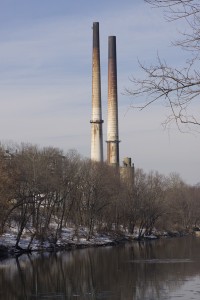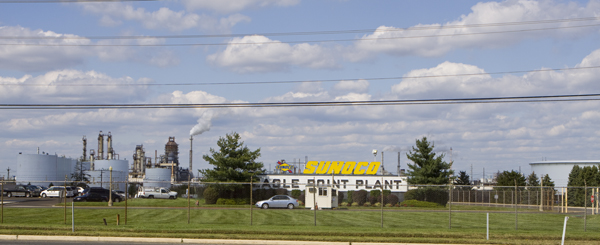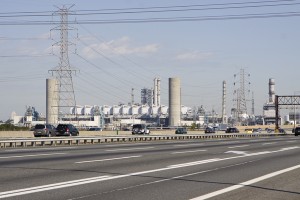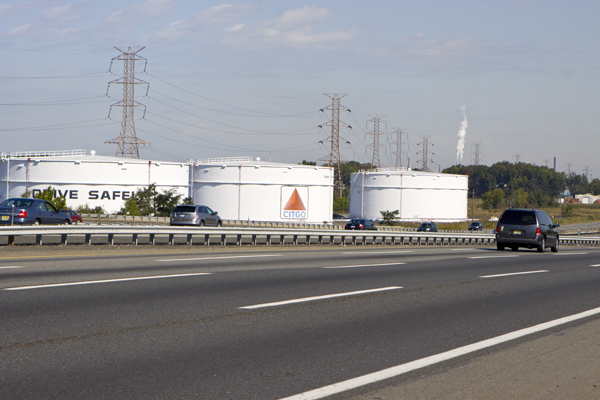
coal power must be phased out
A new national report by Environment America Too-Much-Pollution-Report-11.12.09.pdf shows that US emissions of green house gas continue to rise. The study analyzed only carbon dioxide emissions, a key global warming pollutant, for the periods 1990-2004 and 2004-2007.
This Report calls into question whether current efforts to reduce emissions are serious – because they clearly are not effective. The Report also calls into question whether the “cap and trade” approach in legislation pending before Congress is workable.
I want to make just two quick key points on what the NJ data mean (more extensive analysis can be found here and here and here and here and here and here and here)
#1 – Cap and trade is a fatally flawed approach and will not produce emissions reductions (watch the YouTube video) – we made many of the same points 2 years ago about offsets and false caps in this post);
#2 – Multi-sector across the board mandatory regulatory emission controls are required to reduce emissions. (see: Star Ledger Op-Ed: “No teeth in “tough” pollution law“
So let’s take a look at NJ’s efforts that were highly touted as solutions to the problem:

Sunoco refinery received subsidies from NJ RGGI law
The 10 northeastern state’s Regional Green House Gas Initiative (RGGI) – a so called “cap and trade” program – was sold by government officials and environmental groups as a way to CAP and REDUCE power plant emissions.
Instead those emissions INCREASED – just like we predicted they would. US Energy Department data shows that NJ in state emissions from the electric sector increased by a staggering 58% from 1990 – 2007, and still continued to increase by 2% from 2004 – 2007.
According to the US Department of Energy data, NJ electric sector emissions in 2007 were 19.4 million tons. The RGGI “cap” for NJ is 22.9 million tons. Therefore RGGI will allow emissions to INCREASE another 18%, before any emissions reduction requirements kick in during the years 2015 – 2019. Those missions reductions are approximately 10%, so the net effect of RGGI is to lock in the current status quo emissions for over a 20 year period – with a slight net INCREASE in emissions!
So why aren’t environmental groups demanding a renegotiation of the RGGI caps they they agreed to?
This same kind of fatal flaw of a generous cap is likely to be replicated in the national cap and trade bill now pending before Congress because there is no accurate national emissions inventory and it is easy to game the system like was done in RGGI.

NJ Turnpike – carbon emitting oil refineries, power plants, and cars. Wind and solar powered electric cars are the only workable solution.
The NJ Global Warming Response Act mandated a 20% REDUCTION in total emissions from all sources by the year 2020 (the in state electric sector accounts for about 15% of NJ total emissions).
Instead total emissions INCREASED by 16% from 1990-2004 and continued to increase by 3% from 2004-2007. That large increase means that reductions in NJ must be even steeper to meet GWRA goals – yet there is no progress in emission reductions because emissions are increasing and no measurable and enforceable controls have been put in place by DEP.
This data shows that both NJ laws are a SHAM – this is critically important as Congress debates legislation on a national cap and trade program similar to RGGI.
Why aren’t the NJ environmentalists and NJ media criticizing this performance, demanding real action, and holding NJ officials and polluters accountable for their poor performance?
See Bergen Record: N.J. spews key pollutant at record rate
See Star Ledger: Study finds Jersey’s pollution on the rise

NJ Turnpike – Oil industry lobbyists got millions of dollars of subsidies in NJ RGGI law – instead of pollution caps, RGGI provides caps on the amount of emissions fees – just $2 – $3 per ton.

Pingback: WolfeNotes.com » Live Earth – A Retrospective
Pingback: WolfeNotes.com » Christie Regulatory Czar Given Tools To Rollback Environmental and Public Health Protections
Pingback: WolfeNotes.com » Hal Bozarth and Dave Pringle – perfect together!
Pingback: WolfeNotes.com » DEP Caught in Cut & Paste Job on Global Warming Data
Pingback: WolfeNotes.com » Senate President Sweeney Attacks Public Health and Evironmental Protections
Pingback: WolfeNotes.com » Greenhouse Gas Emissions Story Lost in the Smoke
Pingback: wildstar gold guide
Pingback: cheap
Pingback: outlet hogan online yahoo
Pingback: wildstar platinums
Pingback: roger vivier online
Pingback: cheap makeup online
Pingback: nike roshe run mens aztec
Pingback: Roger Vivier flats
Pingback: fitflop
Pingback: buy diablo 3 gold
Pingback: christian louboutin shoes sale
Pingback: fitflop Chaussures
Pingback: pay4you
Pingback: latest nike air max
Pingback: mbt
Pingback: nike
Pingback: nike
Pingback: nike
Pingback: nike air force 1 uk
Pingback: nike air yeezy uk
Pingback: nike id air max 90
Pingback: nike shoes
Pingback: nike air max skyline womens
Pingback: nike roshe run custom id